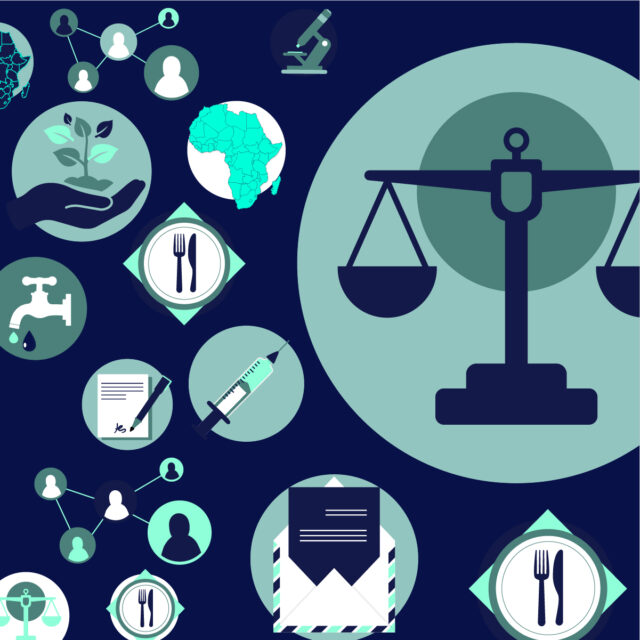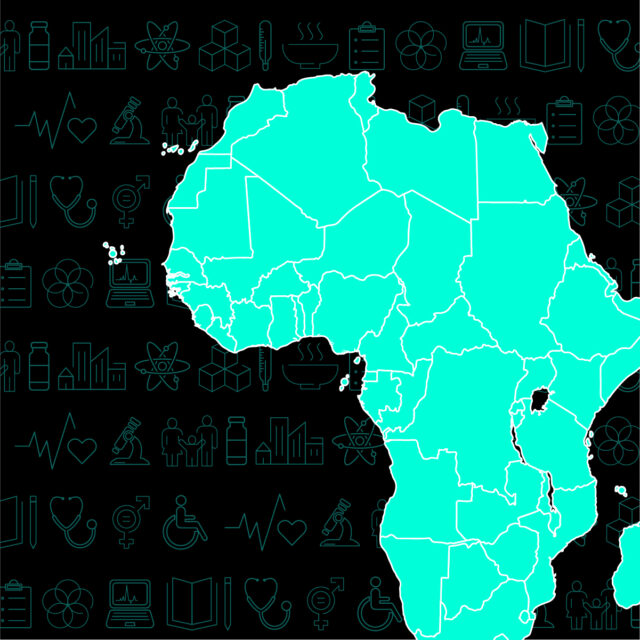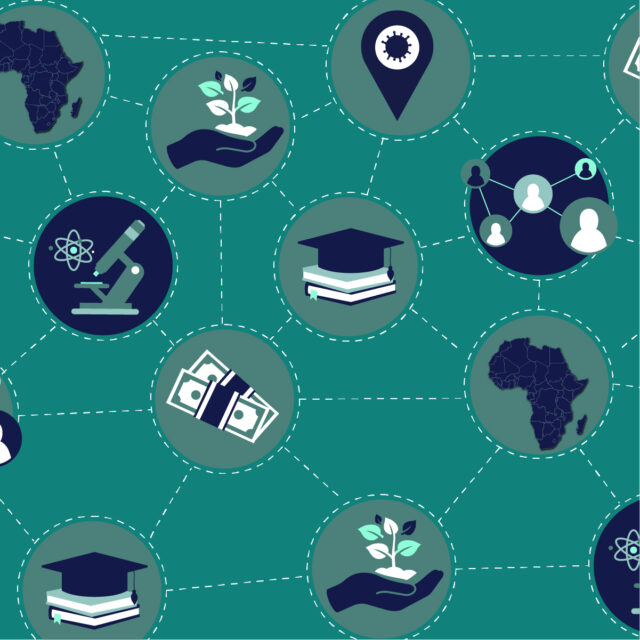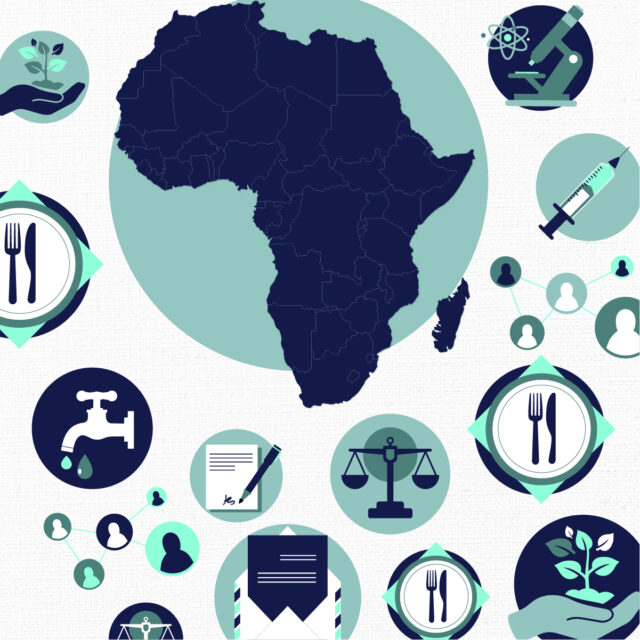A roundup of the latest news, stats, and analysis of COVID-19’s impact in Africa. View our data tracker and sign up for our weekly newsletter. Today, Thursday, 12 May, Belize, Germany, Indonesia, Senegal, and the US co-host the Second Global COVID-19 Summit. In this special edition, we take stock of where we are in the pandemic. Spoiler alert: The world wants to be done with COVID, but the virus is far from done with us.
Top news
Vaccination apartheid: The summit takes place amidst persistent vaccine inequity, and the continued threat that the virus could mutant into an even more dangerous variant. Just 4% of the 11.7 billion COVID-19 vaccines administered globally have been in Africa, with just 1 in 6 of Africa’s 1.3 billion people fully vaccinated, many with non-mRNA vaccines deemed less effective against Omicron. Fourteen African countries have vaccination rates under 10%; in Burundi and the DRC, it’s less than 1%. Rich countries, on the other hand, have hit the WHO’s 70% vaccination target. Meanwhile, South Africa is on the brink of its fifth wave, and the US official death toll nears a staggering 1 million.
Nice words, little action: Thankfully, vaccines aren’t the only tools available: antivirals, like those developed by Pfizer and Merck, can be a literal lifeline to COVID-19 patients. Plus, they are relatively easy and cheap to administer in low-income countries. Win-win, right? Wrong. As with vaccines, rich countries bought up nearly all the initial supply of the drugs, leaving little for less wealthy countries, where they’re most needed given low vaccination rates. Rich countries have purchased 98.7% of Pfizer’s Paxlovid supply and 65.9% of Merck’s molnupiravir. The US has an oversupply of Paxlovid. Pfizer and Merck have made deals with the Medicines Patent Pool to provide generic versions of their drugs in 95 and 105 countries, respectively. But African countries are unlikely to receive those until 2023. And the deals exclude many middle-income countries.
Testing patience: Only 21.5% of the nearly 6 billion COVID tests conducted globally have been in low- and lower middle-income countries, where half the world’s population lives. Over 60% have been used in high-income countries. Testing of course is critical for tracking and combating the virus. The ACT Accelerator has pilot testing programs ready to launch in 20 countries, but a lack of funding means progress has faltered. 🤦♀️ The WHO’s revised estimates for COVID-19 mortality based on excess deaths suggest nearly 15 million people died during the pandemic, almost three times the official statistics.
Mind the gap: Despite these crises, there is still a $14.89 billion gap in financing the global COVID-19 response. 👀 So far, $3.91 billion has been contributed to vaccines, therapeutics, and diagnostics to help respond to COVID-19 in low- and lower-middle-income countries. This includes $1.96 billion from the ACT-A tracker, plus $1.7 billion pledged by donor governments at the COVAX summit on 8 April and bilateral contributions for delivery support.
Recycled promises: On the economic front, SDR recycling pledges have hit 60% of the $100 billion target, with countries like China and Germany hitting their recycling targets. Meanwhile, the US remains stuck at zero — which looks set to continue as the US Congress has failed to pass a budget package for the global COVID-19 response, leaving President Biden empty handed ahead of the summit.
Slow waive: The sluggish saga to secure a meaningful TRIPS waiver continues…v-e-r-y slowly. 🐌 The WTO and its members have successfully taken 18 months to consider an *urgent* IP waiver proposal introduced by India and South Africa in October 2020 {slow clap}. That’s around the same time that rich countries were finalizing advance purchase agreements to buy up the world’s COVID vaccine supply. Last week, a draft TRIPS waiver proposal — which a coalition of 170 groups called insufficient and burdensome because it includes IP barriers and excludes testing and treatments — was presented to the WTO’s full membership. It was met with a lukewarm response, with no country seemingly taking ownership. That sounds like a recipe for further inaction.
All systems low: COVID-19 hit African countries’ health sectors hard. Like COVID-19 disruptions in other parts of the world, people missed appointments and patient flow slowed. But there are systemic differences: per capita healthcare spending is between $8 and $129 in African countries, versus $4,000 in high-income countries, in part due to low GDP and taxes. This translated into less pandemic preparedness, insufficient resources and equipment, and limited testing capacity, which undermined countries’ COVID responses. A decrease in routine (as well as COVID) vaccinations is amongst the many consequences, with a 400% increase in measles cases across Africa. Declining government revenues will make it even more challenging for low-income countries to strengthen their health systems to combat this pandemic and prepare for the next. SDRs, if reallocated to countries in need, could help fill this gap. Cue the Jeopardy theme song.
The numbers
- 94%: the portion of Paxlovid antiviral sales purchased by high-income countries to date.
- 2.7 times: the number of vaccine doses high-income countries have purchased compared to COVAX.
- 7.7 million: the number of African children who missed their Diphtheria-Tetanus-Pertussis (DTP-1) vaccines in 2020. That’s 45% of all children globally who missed their vaccines.
- 96%: Nigeria’s revenue spent on debt servicing in 2021, setting the country’s new worst record.
More reads
- 8 steps the US government could take for equal access to antivirals. (Center for Global Development
- As the pandemic rages on, so too do Pfizer’s profits. (Tribune)
- South Africa’s localized vaccine production is under threat. (U.S. News)
- The prime minister of the Bahamas calls on rich, high carbon-emitting countries to forgive debt (Eyewitness News)
- 7 African countries are experiencing their fastest rise in COVID-19 cases. (Bloomberg)
- ONE’s CEO Gayle Smith is challenging world leaders to show bold action and decisive leadership in pursuing a coherent strategy to end the pandemic. (ONE)



